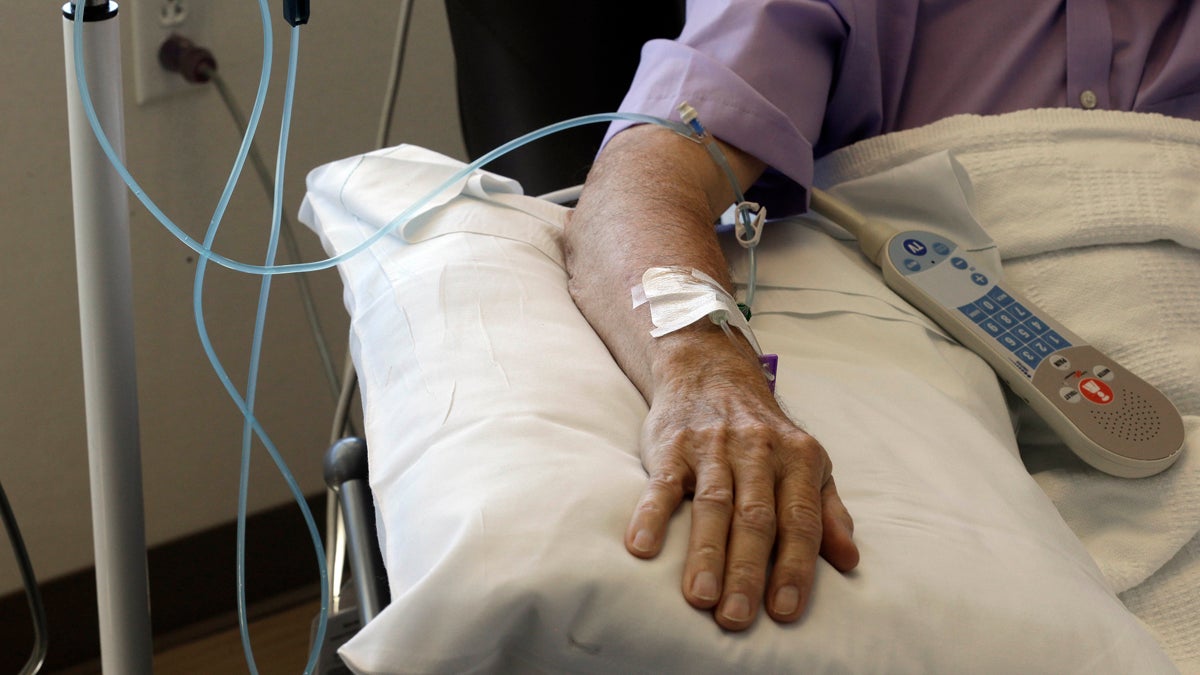Patients with HIV less likely to get treatment for cancer
Listen
In this Thursday, Sept. 5, 2013 photo, chemotherapy is administered to a cancer patient (Gerry Broome/AP Photo)
With advances in medication, infection with HIV is no longer a death sentence. But with longer life comes the chance of cancer. Now, a study from the University of Pennsylvania finds HIV positive patients are less likely than their peers to be treated for tumors.
Researchers combed through three states’ HIV and cancer registry data from 1996 to 2010 to identify how frequently patients with the virus received cancer treatment.
Publishing in the Journal of Clinical Oncology, they found that people infected with HIV were one and a half to two times less likely to be treated for certain types of lymphoma and prostate, colorectal, and lung cancers.
Lead author and radiation oncologist Gita Suneja, now at the University of Utah Huntsman Cancer Institute, said those numbers rose to two to four times when looking specifically at early stage cancers.
“That is concerning because those are the cancers that are most likely to be curable with appropriate treatment,” she said.
As for why patients with HIV aren’t getting treatment, Suneja said it’s likely a combination of issues involving the patient, the physicians, and the health care system.
Male patients who contracted the virus from intravenous drug use were at especially high risk of not being treated for their cancer, as were those with low CD4 T cell counts.
Another clue comes from anal cancer, which was not one of the cancers treated less frequently in HIV positive patients. In fact, it is one of the few cancers for which medical guidelines specifically address HIV infection.
“To me, that says that we have an opportunity here to address this treatment disparity,” said Suneja, “by making the information about how to treat these patients more readily available and more accessible.”
She recommended allowing HIV positive patients with controlled infections to participate in clinical trials to get data for other common cancers. Until then, she said, care can be improved by making sure oncologists and HIV specialists both manage a patient’s cancer treatment.
WHYY is your source for fact-based, in-depth journalism and information. As a nonprofit organization, we rely on financial support from readers like you. Please give today.

